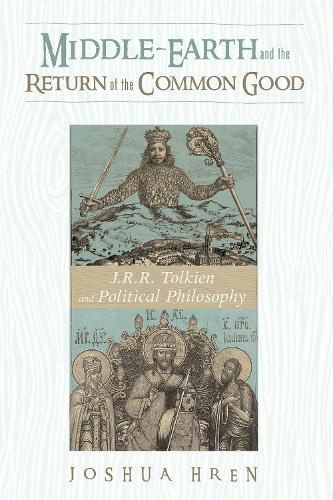Readings Newsletter
Become a Readings Member to make your shopping experience even easier.
Sign in or sign up for free!
You’re not far away from qualifying for FREE standard shipping within Australia
You’ve qualified for FREE standard shipping within Australia
The cart is loading…






This title is printed to order. This book may have been self-published. If so, we cannot guarantee the quality of the content. In the main most books will have gone through the editing process however some may not. We therefore suggest that you be aware of this before ordering this book. If in doubt check either the author or publisher’s details as we are unable to accept any returns unless they are faulty. Please contact us if you have any questions.
Political philosophy is nothing other than looking at things political under the aspect of eternity. This book invites us to look philosophically at political things in J.R.R. Tolkien’s legendarium, demonstrating that Tolkien’s potent mythology can be brought into rich, fruitful dialogue with works of political philosophy and political theology as different as Plato’s Timaeus, Aquinas’ De Regno, Hobbes’s Leviathan, and Erik Peterson’s Monotheism as a Political Problem. It concludes that a political reading of Tolkien’s work is most luminous when conducted by the harmonious lights of fides et ratio as found in the thought of Thomas Aquinas. A broad study of Tolkien and the political is especially pertinent in that the legendarium operates on two levels. As a popular mythology it is, in the author’s own words a really long story that would hold the attention of readers, amuse them, delight them, and at times maybe excite them or deeply move them. But the stories of The Silmarillion and The Lord of the Rings contain deeper teachings that can only be drawn out when read philosophically. Written from the vantage of a mind that is deeply Christian, Tolkien’s stories grant us a revelatory gaze into the major political problems of modernity–from individualism to totalitarianism, sovereignty to surveillance, terror to technocracy. As an outsider in modernity, Tolkien invites us to question the modern in a manner that moves beyond reaction into a vivid and compelling vision of the common good.
$9.00 standard shipping within Australia
FREE standard shipping within Australia for orders over $100.00
Express & International shipping calculated at checkout
This title is printed to order. This book may have been self-published. If so, we cannot guarantee the quality of the content. In the main most books will have gone through the editing process however some may not. We therefore suggest that you be aware of this before ordering this book. If in doubt check either the author or publisher’s details as we are unable to accept any returns unless they are faulty. Please contact us if you have any questions.
Political philosophy is nothing other than looking at things political under the aspect of eternity. This book invites us to look philosophically at political things in J.R.R. Tolkien’s legendarium, demonstrating that Tolkien’s potent mythology can be brought into rich, fruitful dialogue with works of political philosophy and political theology as different as Plato’s Timaeus, Aquinas’ De Regno, Hobbes’s Leviathan, and Erik Peterson’s Monotheism as a Political Problem. It concludes that a political reading of Tolkien’s work is most luminous when conducted by the harmonious lights of fides et ratio as found in the thought of Thomas Aquinas. A broad study of Tolkien and the political is especially pertinent in that the legendarium operates on two levels. As a popular mythology it is, in the author’s own words a really long story that would hold the attention of readers, amuse them, delight them, and at times maybe excite them or deeply move them. But the stories of The Silmarillion and The Lord of the Rings contain deeper teachings that can only be drawn out when read philosophically. Written from the vantage of a mind that is deeply Christian, Tolkien’s stories grant us a revelatory gaze into the major political problems of modernity–from individualism to totalitarianism, sovereignty to surveillance, terror to technocracy. As an outsider in modernity, Tolkien invites us to question the modern in a manner that moves beyond reaction into a vivid and compelling vision of the common good.